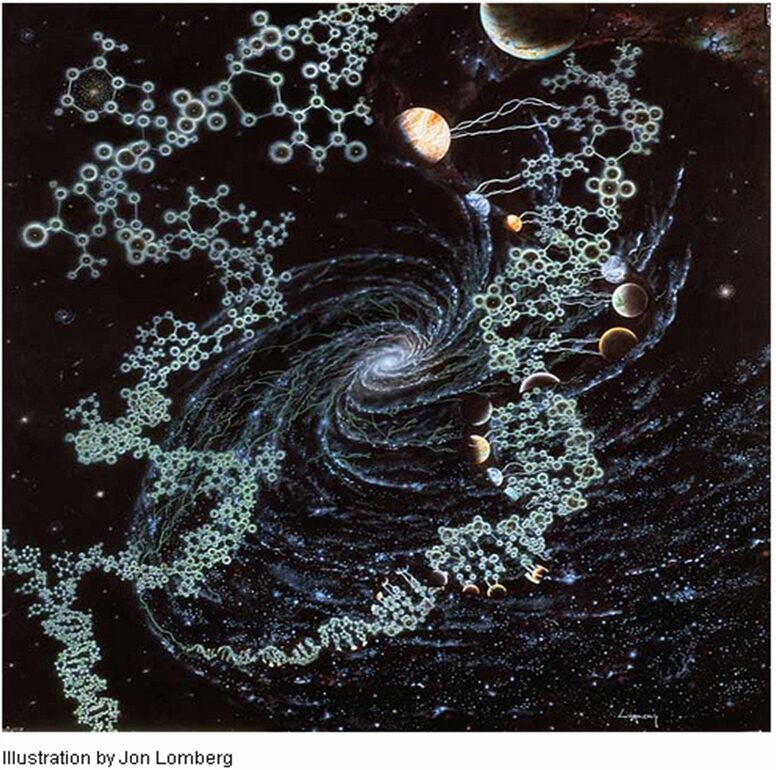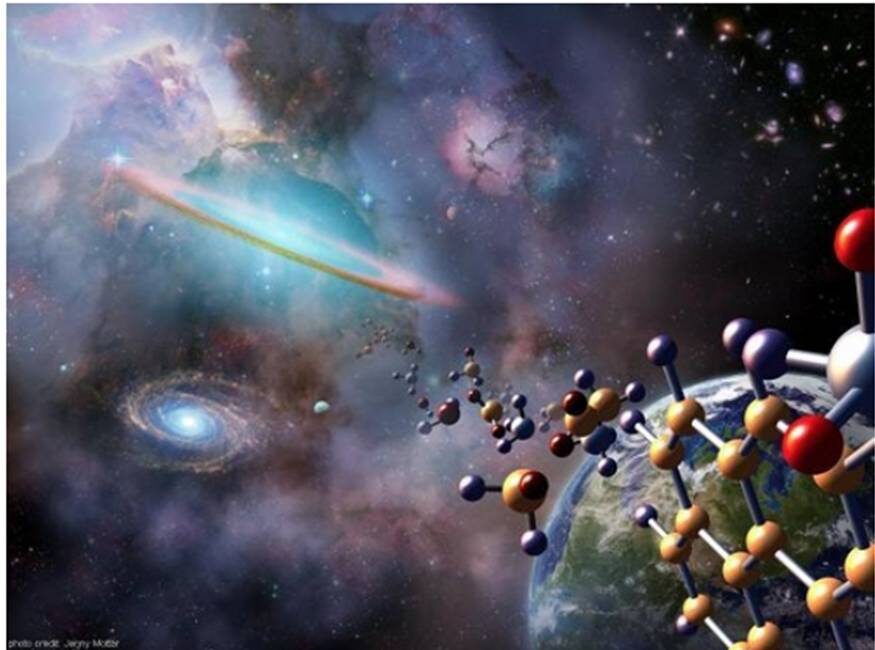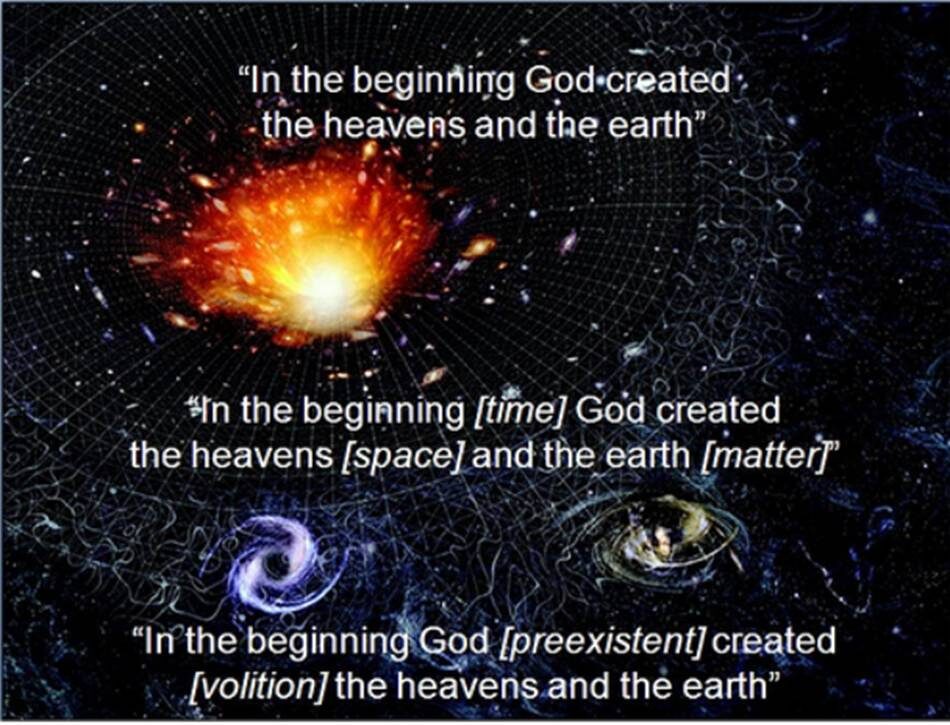For since the creation of the world God’s invisible qualities, his eternal power and divine nature, have been clearly seen, being understood from what has been made, so that men are without excuse
—Romans 1:20
When you have been in the Q&A of apologetics long enough you see patters with tend to repeat; many people have the very same questions. Yet, on occasion you run across a question of statement that really makes you think…think something to the likes of, “Oi vey!”
I recently received the following statement regarding the article God and the science classroom with particular regards to the “universe (which the Bible does not say God created, BTW).”

We simply must appreciate the fact that such astute and erudite scholars have finally concluded that Jews and Christians have been in error for millennia upon millennia as they have wrongly assumed that the Bible does, indeed, state that God created the universe. This is the level of scholarly arrogance with which we are dealing. This is tantamount to Sam Harris’ claim that you can get a justification for stoning someone for adultery from the New Testament—something which no other person in two millennia noticed; not even Jesus BTW.
One simply has to wonder what drives people to such unfathomable depths of ignorance (literally lacking knowledge). Is it a basic bankruptcy as to the contents, contexts and concepts of the Bible which plague our society and the pop-internet-culture? Is it the misinformation promulgated by websites such as evilbible.com, positiveatheism.org,
skepticsannotatedbible.com, Capella’s Guide to Atheism, ex-christian.net, et al?
Yet, even if such websites provide the misinformation, misinterpretations, misapplications, misreading, misunderstandings that they do one would expect an honest skeptic to search these things out and conclude that they are simply unscholarly emotive devices.
So what is it? Well, on an individual level only the individual and God knows. Ultimately, it is an issue of spiritual warfare and that atheism is an emotional rejection of God disguised behind a thin veil of scientific and intellectual respectability.
This has merely been food for thought, now to the issue. While one would love to simply dismiss such statements as mere malarkey the fact is that, as per 1st Peter 3:15, apologists are to be ever ready to give an answer for the hope that is in us with gentleness and respect.
So, away we go: the assertion was that the Bible does not state that God created the universe.
Now let us consider the evidence:
I know, I know, you are thinking, “Just quote Genesis 1:1 and get it over with.” Well, I suspect that quoting “In the beginning God created the heavens and the earth” will be considered as referring only to the sky and soil or some such thing. I suspect that regardless of the many texts to which we may refer an attempt will be made to claim that it does not specify “the universe” in the manner in which we define the words today, etc.
So, how about John 1:1-3?
In the beginning was the Word, and the Word was with God, and the Word was God. He was in the beginning with God.
All things were made through Him, and without Him nothing was made that was made.
Thus, anything that was made, that had a beginning, was made by Him, the Word, Jesus, who was with God in the beginning and therefore, has no beginning Himself. “All things were made through Him, and without Him nothing was made that was made” and in the original Greek “all” means “all”—just a little apologetics humor, very little :o)
How about Colossians 1:16?
He is the image of the invisible God, the firstborn over all creation. For by Him all things were created that are in heaven and that are on earth, visible and invisible, whether thrones or dominions or principalities or powers. All things were created through Him and for Him. And He is before all things, and in Him all things consist.
“all things…All things” all and everywhere / anywhere. So firm is this text that Jehovah’s Witnesses—who deny that Jesus is the eternal God almighty—manipulate the text in their translation via brackets and thus, render it as:
He is the image of the invisible God, the firstborn of all creation; because by means of him all [other] things were created in the heavens and upon the Earth, the things visible and the things invisible, no matter whether they are thrones or lordships or governments or authorities. All [other] things have been created through him and for him. Also, he is before all [other] things and by means of him all [other] things were made to exist.
The texts says “all” but they must force it to say “all [other]”; I, at least, give them credit for using brackets in this case (for details on this, see Show Me the Scripture!!! …context…context…context…).

Consider Revelation 4:11,
You are worthy, O Lord, To receive glory and honor and power; For You created all things, And by Your will they exist and were created.
God “created all things” which is why the Kalam Cosmological argument holds as it states that everything that begins to exist has a cause. The universe began to exist and so it had a cause, God never began to exist and so does not require a cause—see On the Flying Spaghetti Monster, the Invisible Pink Unicorns, et al.
But why not reference Genesis 1:1? Let us elucidate it:
In the beginning God created the heavens and the earth.
“In the beginning” refers to time, “the heavens” refers to space, “the earth” refers to matter. “In the beginning” refers to the finite creation of the universe. “God” refers to a preexistent time-less, space-less, matter-less being or; eternal, not confined to locality nor subject to natural laws, immaterial or spirit.
“created” refers to being brought into being, infused with energy/matter, designed.

What about Hebrews 11:3?
the worlds were framed by the word of God, so that the things which are seen were not made of things which are visible.
Hebrews 1:2 states that God,
has appointed heir of all things, through whom also He made the worlds
By the way, that Jesus was “appointed heir of all things” is the meaning of “firstborn” in the text previously considered.
What of 2nd Peter 3? Some claims that this text refers to God not creating out of nothing but forming out of pre-existing stuff (although, keep in mind that God did form after having created out of nothing).
Interestingly, the text makes reference to uniformaterianism as it is related that “mockers will come with their mocking, following after their own lusts, and saying, ‘Where is the promise of His coming? For ever since the fathers fell asleep, all continues just as it was from the beginning of creation.’”
The verse in question follows directly upon this and states:
For when they maintain this, it escapes their notice that by the word of God the heavens existed long ago and the earth was formed out of water and by water, through which the world at that time was destroyed, being flooded with water.
At least two things must be kept in mind, as per usual when doing hermeneutics: 1) the immediate context and 2) the greater context. 1) is that Peter is correlating water with water: the water out of which the earth was formed with the water of the flood.
2) is that Genesis 1:2 states, “The earth was formless and void, and darkness was over the surface of the deep, and the Spirit of God was moving over the surface of the waters.”
Thus, first “God created the heavens and the earth” which took place “In the beginning.” Afterwards “the Spirit of God was moving over the surface of the waters.” Then:
Then God said, “Let there be an expanse in the midst of the waters, and let it separate the waters from the waters.” God made the expanse, and separated the waters which were below the expanse from the waters which were above the expanse; and it was so.
God called the expanse heaven. And there was evening and there was morning, a second day.
This is why Peter could state that, “the earth was formed out of water and by water.”
For info on hermeneutics see:
Hermeneutics: on how to properly interpret……..DNA!?!?!
Tips that Atheists [et al.] can use for Understanding the Bible
All Interpretations Are Not Created Equal
Therefore, since God created “all” things, both seen and unseen; He created the universe.
And since the claim was about the “universe (which the Bible does not say God created, BTW)” the claim is fallacious.
Also, see the essay at this link for an example of Trinitarian doctrine in the Bible as it refers to the Father, Son and Holy Spirit as the creator.
